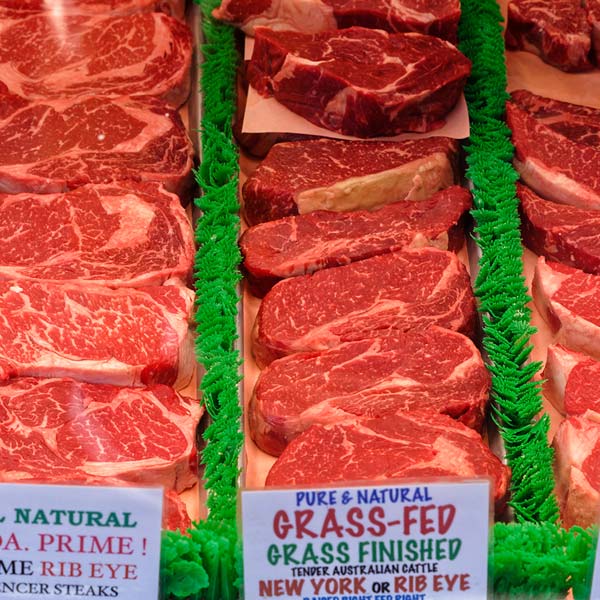Is Flash Frozen 'Fresh'?
The long-standing debate around fresh vs. frozen meat, poultry, and fish is often perpetuated by the stigma surrounding flash freezing. A great deal of misinformation is associated with the process, resulting in poor purchasing decisions and missed opportunities for the truly superior dining experiences fine-dining aficionados are looking for.
That’s why Joe and Sunrise Foods want to share the facts, expose the myths, and define the true meaning of “fresh,” giving you the insight you need to ensure the finest meals possible for you and your family.

How Fresh is “Fresh?”
We’ve all heard the headline, shouted from almost every grocery store, local market, and restaurant: “Fresh, never frozen!” It makes you feel good, doesn’t it? To know that you’re buying the freshest product available. It also implies a common misconception — that frozen product is inherently inferior.
For many retailers, however, “fresh” is a relative term, and many have no interest in sharing the details with you. How long ago was the meat harvested? What’s been added to the meat to keep it looking fresh and attractive? These two important factors determine the overall quality of their product, to say nothing of additional factors like who raised the animals, how were they treated, and what were they fed?
In this regard, fresh meat is like produce — the more time that passes since harvesting, the more it degrades. Without honest answers to the above questions, you don’t know exactly what you’re buying.
How Fresh is “Frozen?”
Some retailers simply advertise their meat as “fresh,” which can sometimes mean that at some point before it reached your eyes, it was frozen for transport and storage, and then thawed — a process that saps nutrients, degrades the fibers, and dries out the meat. Processors and retailers can combat this by adding artificial preservatives and spraying the meat with carbon monoxide to retain that fresh color, but the damage has already been done.
There’s a significant difference between conventional freezing and flash freezing. Conventional freezing, the process we’re all familiar with, takes hours. After all, traditional freezers aren’t designed to properly freeze your food — they’re designed to keep your frozen foods cold. During the long conventional freezing process, ice crystals form, splitting the fibers and forcing the juices from the meat, resulting in an inferior final dish, dried out and lacking in flavor and nutrients.
This process clearly isn’t ideal. The problem is that many fresh-only advocates lump conventional freezing into the same category as flash freezing, creating a great deal of misinformation. The truth of the matter is the two processes are worlds apart.
Flash Frozen is Fresh
Flash freezing is the singular best way to retain the freshness and quality of meat, fully preserving the nutrients and juices immediately after harvesting. The process effectively suspends the meat in time — thawing and preparing meat months or even years after flash freezing is virtually identical to doing so directly after harvesting.
By first vacuum-sealing meat, completely removing the surrounding air, the ability for ice crystals to form is greatly reduced. This goes a long way toward ensuring the texture, flavor, and composition of the meat remain unchanged.
The flash freezing process itself is typically achieved by circulating air at ultra-low temperatures, using highly specialized equipment specifically designed for the process. The greatly increased speed of this technique further reduces the formation of ice crystals, resulting in nearly perfect preservation.
Flash Frozen Means Superior Freshness
Flash freezing is more than the most effective way to preserve the freshness of your meat. It also allows you to store your meat longer with no loss of quality.
That’s why we only work with suppliers who utilize the process, ensuring that every cut from Sunrise Specialty Foods is among the finest to be found in all of Pittsburgh.
Have additional questions regarding flash freezing, specialty meats, or the latest recipes? Contact us today for information, tips, and advice!
